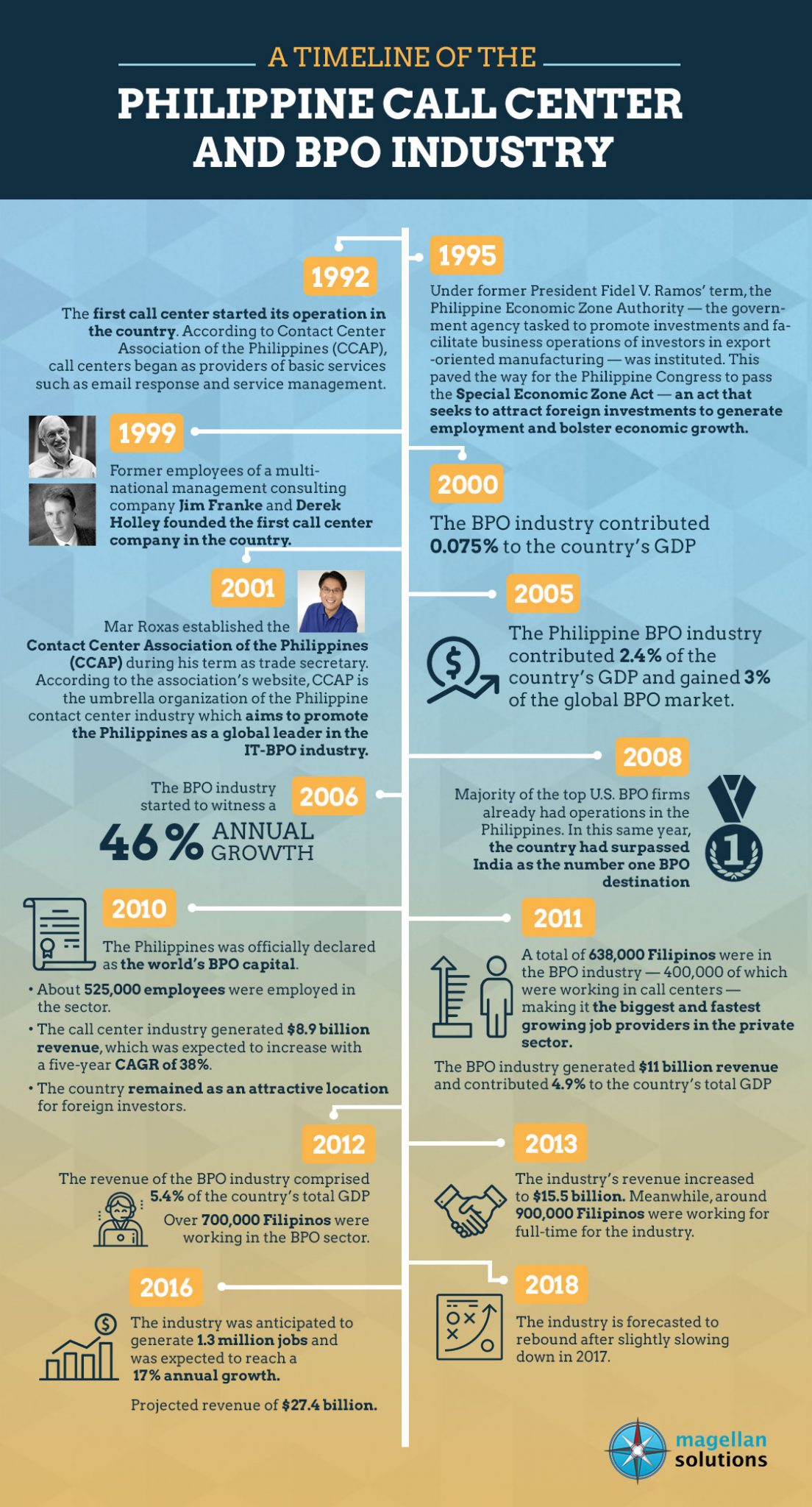The Philippines is now home to the largest call center industry in the world, having overtaken the Business Process Outsourcing (BPO) giant, India in 2013. Over one million Filipino skilled workers are directly employed in this human resource sector, and that number is expected to continue to rise to 1.3 million by 2016. The immense popularity of Philippines call centers in the BPO sector is due in large part to a perfect combination of two very important factors: Economics and Culture.
Call center service is a serious profession in the Philippines. People who work in this industry are carefully screened and selected for their excellent English and customer service skills. Most of them have a college-level education, and are given further training in the art of sale negation and customer service. They are also paid well to perform their services in a professional and patient manner.
Philippine call centers cater to clients from the US, United Kingdom and Australia. The hired customer service representatives learn the foreign accent and study the geography and cultural morals of these countries. Being the third largest English speaking country in the world, with a high literacy rate, the Philippines is considered as one of the most competitive call center destinations in the world.
Today, the Philippines is one of the world’s key players in offshore call center business, together with China and India. Call centers continue to grow and surpass the target of employment every year because of the high demand of the offshore business in many parts of the world. Over the past few years, the entry of foreign investors owning small-and-big call center companies in the Philippines signifies that business process outsourcing is considered as the sunshine industry.
The geographic location of the Philippines, which is the gateway to other Asian nations, maintains the interest of investors. Investors are likely to place more contact centers because of the lower cost of labor, compared to the other Asian countries, and better infrastructure, including state-of-the-art technology.
Since the beginning of the call center industry in 2000, the outsourcing business has high importance for the Philippine Government. A call center in the Philippines continues to be acknowledged as the sunshine industry because of the massive developments brought to the country, not only in Metro Manila, but also the expansion into other provinces such as Baguio, Cebu, Iloilo, Bacolod, and Davao. Last July, President Gloria Macapagal-Arroyo highlighted that the government is seriously focusing on supporting the call center industry by putting together a satisfactory budget for the education sector which will be utilized for trainings in the fields of computer, Internet and English for the students and teachers.
The Filipino’s ability to communicate in English strengthens the campaign of the government to establish more contact centers. Almost 95 percent of the population can deliver fluency and understand it effectively. English, an outgrowth of American colonialism, was the medium of instruction in schools for decades. With a long history of contact with the United States, including several decades of American colonial rule, Filipinos are more attuned to Western culture than most Asians are. Call center employees in the Philippines not only find it easy to relate to Westerners, but are also quick to adapt to a variety of accents.

A call center is a communications-based company which serves as a support system for larger companies in first-world countries, like the United States. Call or contact centers handle customer complaints and inquiries. Call center agents provide technical support for a wide array of products and services like electronics, e-mail management, mortgage, insurance, advertising, telecommunications, and even volunteer and charity work. Customer service representatives receive and make calls to anywhere in the world.
There are two categories of call centers: inbound and outbound. There are also three types of accounts: telemarketing, customer service and technical support. Telemarketing belongs to the inbound category. However, customer service centers also engage in up selling, which means offering or selling services. With all these type of categories, Filipino agents are considerably tough and can employ further development in handling any types of concerns.
When it comes to the employee benefits, call center agents enjoy a premium salary package. They can receive benefits like SSS, Health Insurance, Pag-big and salary loans. They also receive commissions, night differential pay, bonuses and freebies from the company. Working in a call center in the Philippines is not age-restricted, as long as the applicants can communicate English. The contact center companies also encourage fresh graduates from the universities and colleges to apply anytime.
Source:
https://globalsky.com/call-center-industry-in-the-philippines/
https://callnovo.com/philippines-call-center/
https://www.magellan-solutions.com/blog/the-philippine-call-center-industry-a-brief-history/



















